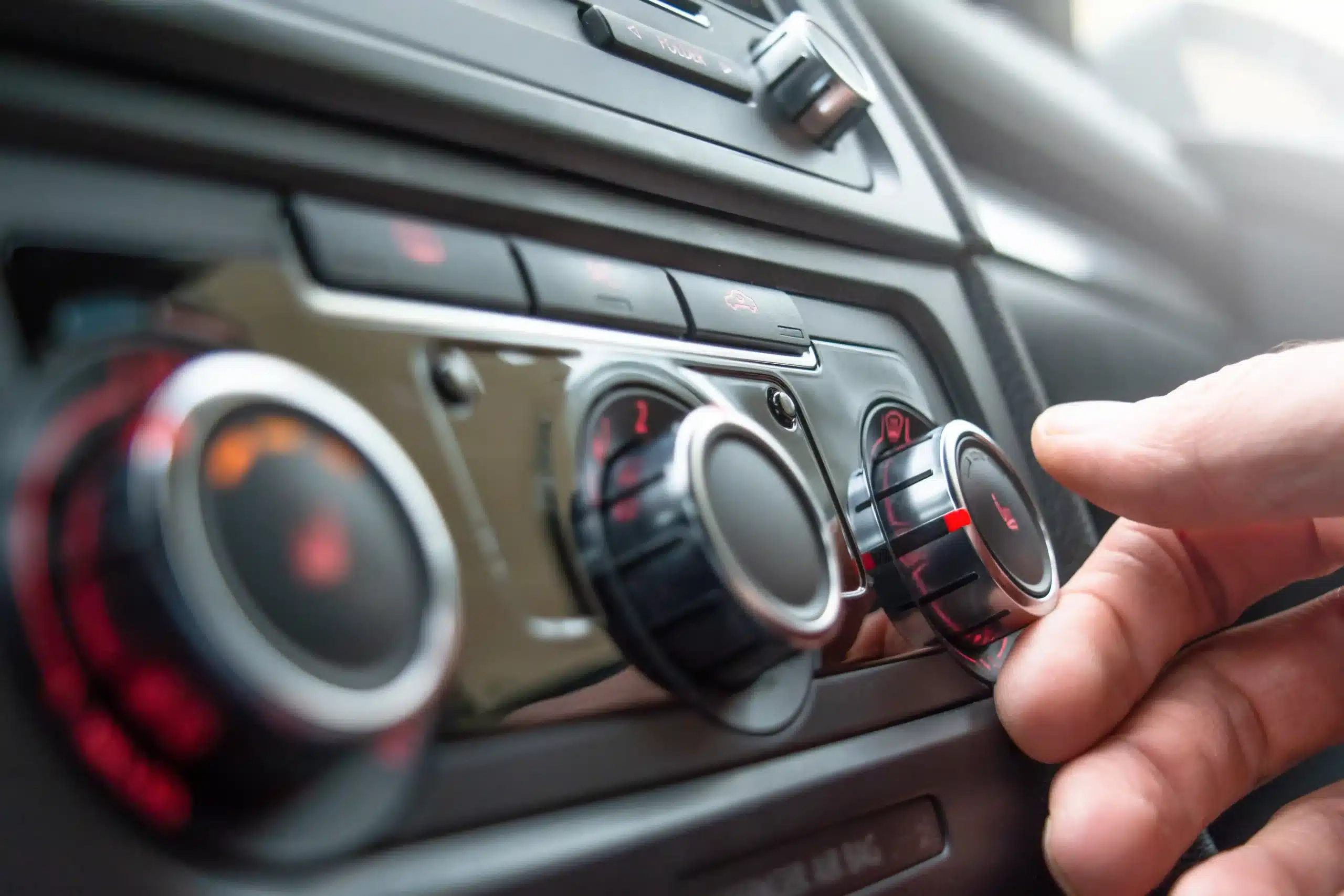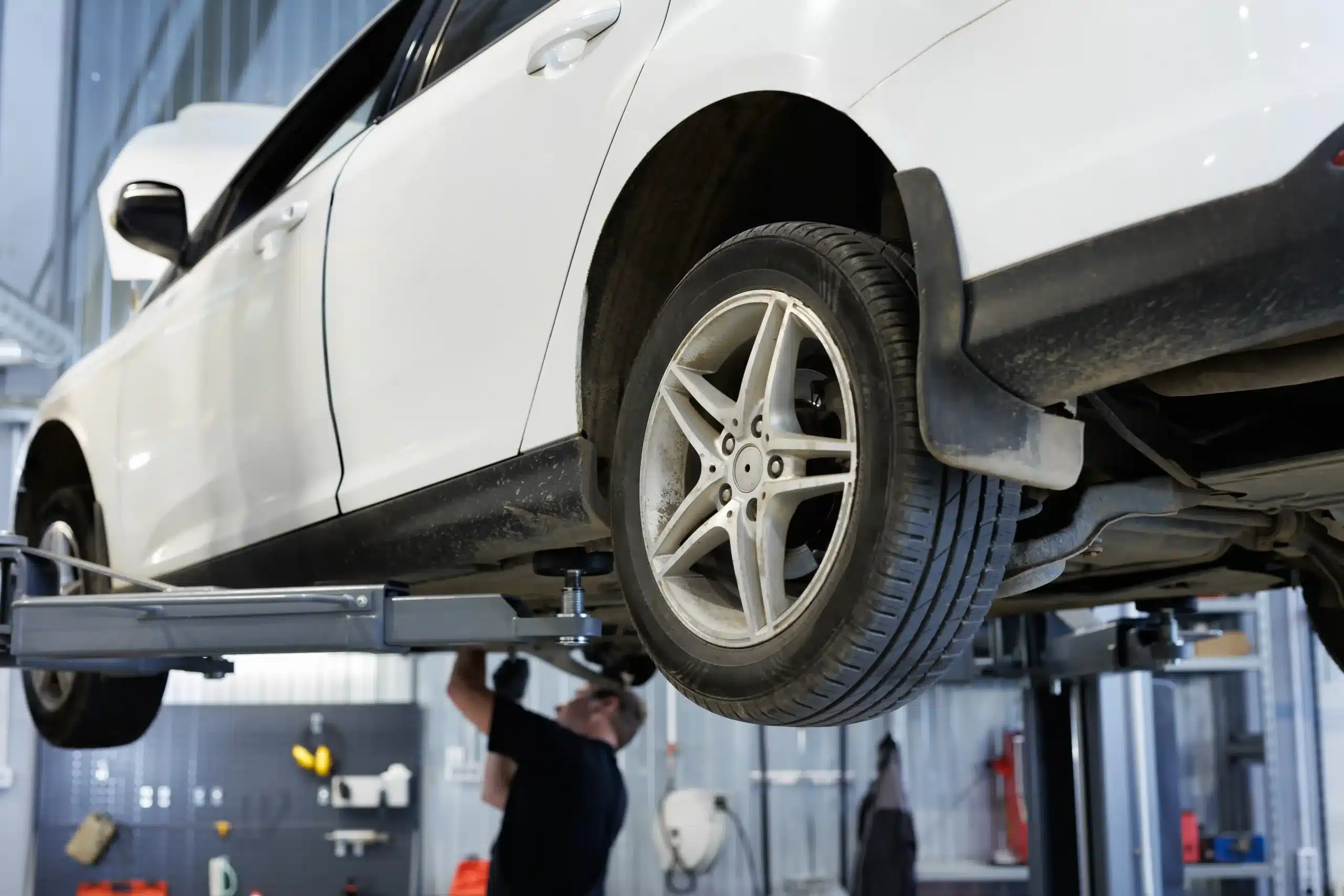Your car’s catalytic converter is one of the most important parts of your exhaust system. It reduces harmful gases and keeps your vehicle legal to drive on UK roads. Understanding catalytic converter problems early can save you money and prevent bigger issues.
What Is a Catalytic Converter?
A catalytic converter sits in your exhaust system between the engine andthe back exhaust. Inside, there’s a honeycomb structure coated with precious metals like platinum, palladium, and rhodium. These metals help convert toxic gases from your engine into safer emissions.
The converter transforms harmful gases into cleaner ones. It turns carbon monoxide into carbon dioxide and water, breaks down nitrogen oxides, and burns unburnt hydrocarbons. This happens when exhaust gases pass through the hot converter, producing mainly water vapour and carbon dioxide.
Common Catalytic Converter Problems
Physical Damage
The converter sits underneath your car, making it vulnerable to damage from speed bumps, potholes, or road debris. Physical damage stops the converter from working properly and usually needs immediate replacement.
Clogged Converter
When your air-fuel mixture isn’t right, carbon deposits build up inside the honeycomb structure. This blocks exhaust gases and hurts engine performance. You’ll notice your car feels sluggish or struggles to accelerate.
Failed Oxygen Sensor
The oxygen sensor monitors exhaust gases and helps control the air-fuel mixture. A faulty sensor can cause too much fuel to enter the engine, overheating and damaging your catalytic converter. This is why regular car diagnostics matter.
Worn Spark Plugs
Bad spark plugs cause misfires, sending unburnt fuel into the exhaust system. This fuel burns inside the catalytic converter, creating extreme heat that damages the honeycomb structure. Regular spark plug replacement prevents this problem.
Converter Theft
Catalytic converters contain precious metals, making them targets for thieves. Theft has become increasingly common across East Ham and throughout the UK.
Warning Signs of a Bad Catalytic Converter
Check Engine Light
The check engine light is usually the first warning. Modern cars monitor exhaust gases constantly. When emissions readings fall outside normal ranges, this light appears. Don’t ignore it. Get car diagnostics done quickly to identify the exact problem.
Rotten Eggs Smell
A strong smell of rotten eggs means your catalytic converter isn’t processing sulphur properly. This distinct smell is a clear sign of converter problems.
Poor Engine Performance
A failed catalytic converter restricts exhaust flow. You’ll notice reduced acceleration, difficulty starting, lower fuel efficiency, and rough idling. The restricted flow stops your engine from breathing properly.
Rattling Noises
Listen for rattling sounds from underneath your car. This noise means the honeycomb structure inside has broken apart. The broken pieces move around inside the casing, especially during acceleration.
Failed MOT
A bad catalytic converter produces excessive emissions. Your vehicle won’t pass its MOT test, making it illegal to drive.
How Long Does a Catalytic Converter Last?
| Factor | Impact on Lifespan |
|---|---|
| Normal driving | 10-15 years or 100,000+ miles |
| Short journeys | Reduced (converter doesn’t reach working temperature) |
| Poor maintenance | Significantly reduced |
| Quality fuel | Good fuel extends life |
| Driving style | Aggressive driving reduces lifespan |
Catalytic Converter Replacement Costs
Converter replacement costs depend on your vehicle. Expect to pay between £300 and £1,300 total. Parts cost £200 to £1,000, whilst labour costs £100 to £300. At First Auto Centre in East Ham, we provide honest quotes and use quality parts that meet UK standards.
Legal Requirements
According to Government guidance on vehicle emissions modifications, removing your catalytic converter is illegal if it causes excessive emissions. Cars registered after 1st March 2001 need type-approved replacements. Driving without a working converter can result in £1,000 fines. Your vehicle will also fail its MOT.
Can You Drive With a Faulty Converter?
Your car might run with a damaged converter, but you shouldn’t drive it. You’re breaking the law if emissions exceed legal limits. Your insurance might not be valid. The car won’t pass its MOT, making it illegal on public roads. A faulty converter can damage other exhaust system parts, leading to bigger repair bills. Your engine performance will suffer, using more fuel and producing less power.
Preventing Converter Problems
Regular maintenance helps your catalytic converter last longer. Keep up with servicing so your engine runs efficiently. At First Auto Centre, we check your exhaust system during every service. Use quality fuel that burns cleaner. Address the check engine light quickly before small problems become expensive repairs. Take longer journeys occasionally so the converter reaches its optimal working temperature. Park in well-lit areas to prevent theft.
Why Choose First Auto Centre?
Located at 1 Lawrence Road, East Ham (E6 1JN), First Auto Centre has over 20 years of experience with exhaust system repairs and catalytic converter replacement. We offer honest advice, competitive pricing, quality parts, and experienced mechanics. Our warranties give you peace of mind.
Conclusion
Your catalytic converter keeps your car legal, efficient, and environmentally friendly. Understanding converter problems and warning signs helps you act quickly. If your check engine light is on or you smell rotten eggs, don’t delay. Contact First Auto Centre in East Ham today for expert diagnosis and honest advice about the best way forward.








